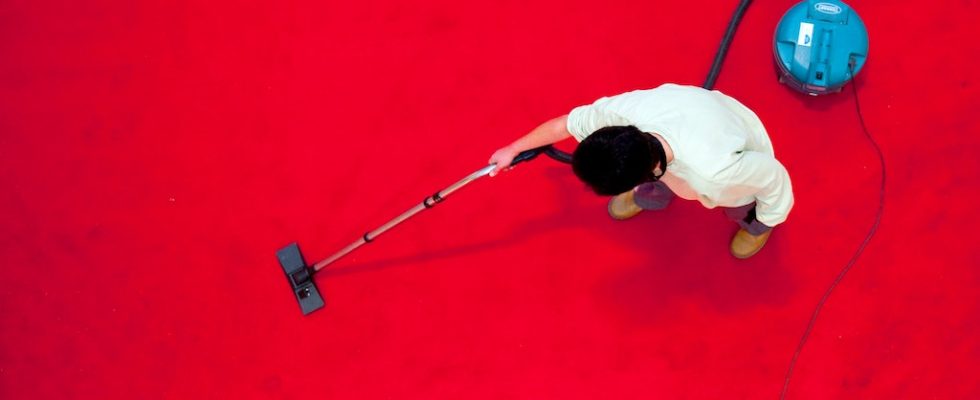In the past few days there has been a heated discussion in the film industry and online about whether it was right that AfD politicians were invited to the Berlinale opening. The fact that the invited AfD politicians were democratically elected representatives of the people and as such were invited like politicians from other parties was usually cited as a pro-argument. The counter-argument was that the film festival’s values of a cosmopolitan society were not compatible with the AfD’s programmatic statements.
Now the Berlinale has withdrawn the invitations it originally issued to the AfD. “Today the Berlinale management decided to disinvite the five AfD politicians who were previously invited,” reported the festival’s press department on Thursday afternoon at 4:46 p.m.
How does the Berlinale officially justify the move? “Especially in view of the revelations that have emerged in recent weeks about explicitly anti-democratic positions and individual AfD politicians, it is important for us – as a Berlinale and as a team – to take an unambiguous stand for an open democracy. “Today we have therefore disinvited all previously invited AfD politicians in writing and informed them that they are not welcome at the Berlinale,” said the Berlinale management duo, Mariëtte Rissenbeek and Carlo Chatrian.
According to the Berlinale press release, the current discourse has once again made it clear “how much the commitment to a free, tolerant society and against right-wing extremism is part of the DNA of the Berlinale”. The Berlinale has been committed to “basic democratic values and against all forms of right-wing extremism for decades.” The festival has repeatedly pointed out that it is observing with concern “how anti-Semitism, anti-Muslim sentiment, hate speech and other anti-democratic and discriminatory attitudes are increasing in Germany”.
No AfD at the Berlinale: Against long-standing practice?
The Senate Chancellery is responsible for inviting politicians from Berlin – 100 places this year. “Parliament, as the budget legislator, is always invited to events that are supported with public money,” it says. About a third of the Berlinale is financed by public money, ticket sales and sponsor acquisition.
Good morning Berlin
Newsletter
Thank you for signing up.
You will receive a confirmation by email.
According to the Senate Chancellery, the President, the Vice-Presidents, the parliamentary group leaders and the media and cultural policy spokespersons of the parliamentary groups are always invited from the House of Representatives. “The principle of equal treatment applies here: all political groups and their respective speakers are invited. This is long-standing and practiced practice,” it continues. According to this information, the AfD parliamentary group leader and their cultural and media policy spokesperson were also invited to the House of Representatives in previous years.
The Senate Chancellery commented on the Berlinale management’s own disinvitation of the AfD staff this year: “This is a decision by the Berlinale management.”
No Berlinale visit? AfD parliamentary group announces statement
The decision was preceded by an open letter of protest against the AfD’s invitation to the opening of the festival. It was signed by 200 international artists, most of them from Germany.
On Monday, the Berlin AfD parliamentary group leader Kristin Brinker announced that she wanted to come to the opening gala despite the protest. “Like every year, we visit the Berlinale,” said Brinker. Take the excitement of “fewer activists” calmly. When asked by the Berliner Zeitung how they would react to the festival management’s disinvitation, an AfD parliamentary group spokesman announced a statement for Friday.
The cultural policy spokesman for the AfD parliamentary group, Marc Jongen, was also invited to the festival. The disinvitation is also aimed at him. “It is deeply regrettable that the management of the Berlinale has now caved in to the general pressure of opinion and is also uncritically spreading the false claims of the media campaign against the AfD,” Jongen told the Berliner Zeitung.
The Berlinale and the AfD: How can the invitations be withdrawn?
What exactly has changed in the last few weeks or days so that the invitation practice that has been common for years at the Berlinale has been subsequently discarded this time? We asked the Berlinale – and got an answer from Mariette Rissenbeek, the Berlinale managing director: There had been intensive discussions again over the last two days, dealing with “the Berlinale’s self-image as a democratic cultural institution” and the festival’s mission statement. “We have now abandoned previous political self-evidents with a view to the AfD and its sometimes clearly right-wing extremist statements,” wrote Mariette Rissenbeek on Thursday evening, “and thus positioned ourselves clearly.” Anyone who wants to abolish basic democratic rights and represents positions that discriminate and exclude people is not welcome at the Berlinale.
But how does this actually work formally and practically? Actually, it’s like this: The Federal Government Commissioner for Culture and Media and the Berlin Senate usually receive their invitation contingents for the Berlinale – and then draw up their guest lists according to common practice. “Invitations are then sent out via the Berlinale,” explains Mariette Rissenbeek when asked by the Berliner Zeitung. The Berlinale has now decided to withdraw the invitations to the AfD politicians. “We are pleased that Ms. Roth and the Senate respect this decision.”

